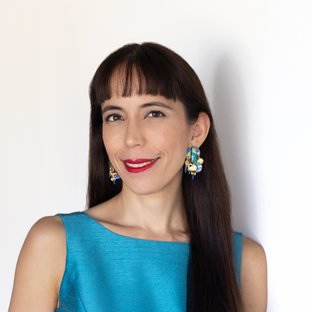English and Joint Schools
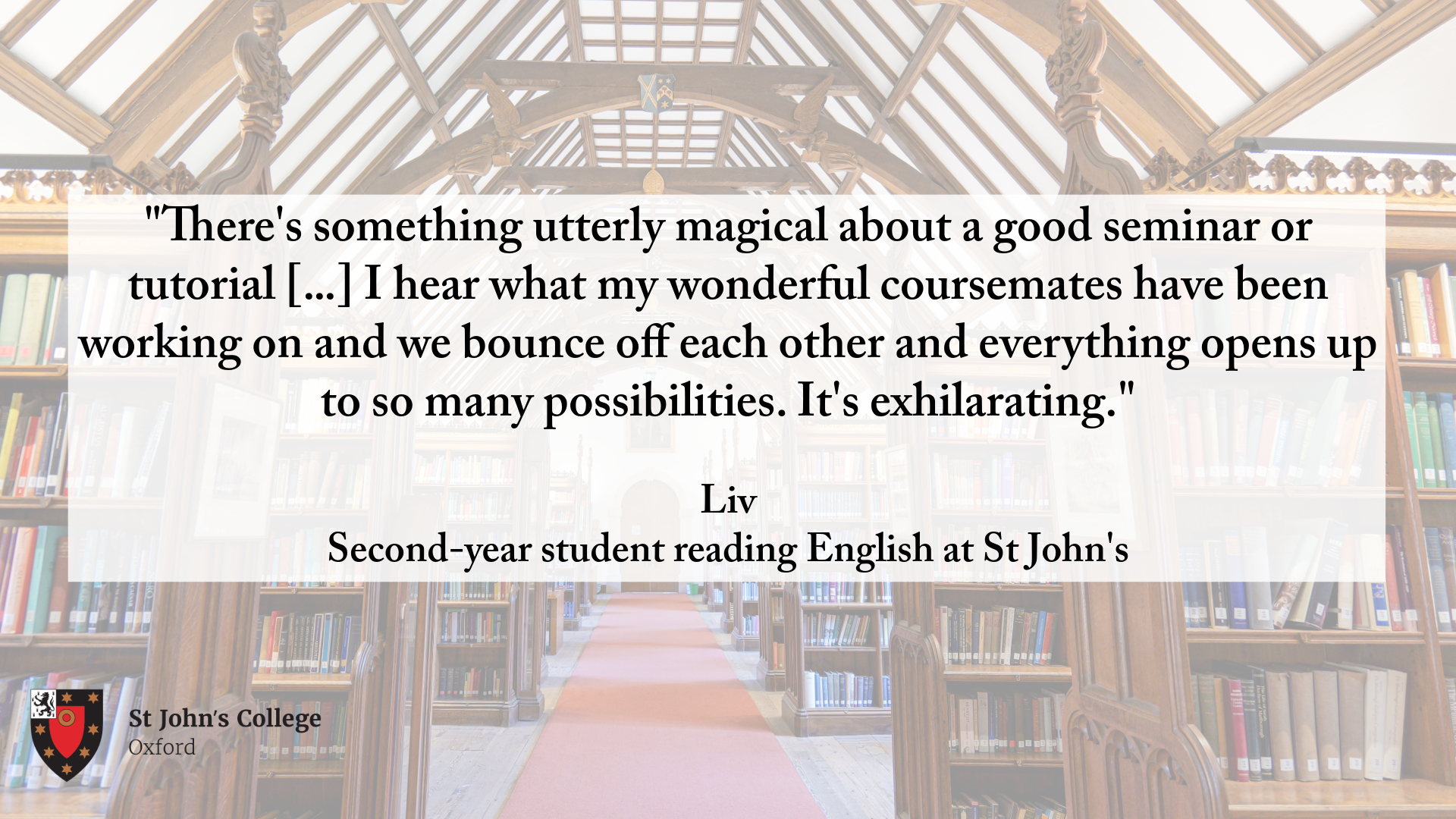
- St John's normally accepts eight students per year for English and Joint Schools; in some years we have admitted as many as ten.
- Our students are naturally eager to engage with the most innovative and challenging aspects of modern and contemporary literature. But they also understand that the unique opportunity presented by the Oxford English degree is to rediscover and renew, in the light of their own experiences and insights, the manifold intellectual and imaginative possibilities within literature’s long history.
- Most fundamental to our approach is that we encourage students to explore the various ways in which literature does not merely reflect, but also creatively transforms, the various ideas and ideological frameworks which so powerfully structure our world. Our students therefore become avid readers of many kinds of writing, encompassing not only those texts traditionally defined as literary (poems, novels, plays), but also those which are normally associated with the disciplines of philosophy, religion, history, and politics.
- Students of English at St John’s therefore need to be the kind of people who are passionate about reading widely, and who want to be intellectually challenged. In return for your enthusiasm and ambition, we ensure that you can exchange and debate your ideas in an environment which supports and encourages venturesome freedom of thought.
- The entry requirements for English and Joint Schools are determined by the University’s Faculty of English.
- More information about applying to study English at Oxford can be found on the Faculty’s website.
- General advice about applying to St John’s can be found here.
Teaching, Learning, and Research
- At St John’s the teaching of undergraduates is the responsibility of three Official Fellows in English, each with different research specialisms: Professor Patrick Hayes (modern literature, from the Romantic period to the present day), Professor Noël Sugimura (the early modern period, including Milton and Shakespeare), and Professor Gareth Evans (medieval literature, including Old English and Old Norse). The College is also home to the Drue Heinz Chair in American Literature, Professor Lloyd Pratt, and a group of graduate students who pursue advanced research through masters and doctoral degrees in all areas of the subject.
- Thanks to this major investment in our subject we are able to teach all the periods of literature covered by the Oxford syllabus within St John’s. Doing so enables us to ensure that our high academic standard, and the core educational values outlined above, are maintained throughout your whole experience of the course.
- Our teaching takes place through a mixture of small group seminars and tutorial work. We take special pleasure in the way in which year groups at St John’s have often formed close ties both within and beyond the course, working together in journalism, in the staging of plays, and in the production of films and other kinds of visual art. In recent years our students have been particularly active in drama, taking advantage of the College’s 180-seat auditorium to present plays for a university-wide audience
- All the Professors of English at St John’s are actively involved in research. Our publications encompass a wide range of subjects which you can explore in more detail by following the links to our profiles (see below). At present our research interests are chiefly in the following areas: the articulation of emotion and gender identity in the very earliest forms of writing in England, and from across the medieval world, including the Nordic countries and the Viking diaspora; the seventeenth-century epic poet John Milton, and his transformative impact on traditional ideas about aesthetic value; the American essayist Ralph Waldo Emerson, and the many readers of his work who shaped American life in the nineteenth-century and beyond; the concept of aesthetic education, from its modern origins in the Romantic period down to the present day; the ideal of authentic self-knowledge as explored across life-writing, literature and philosophy; the relationship between literature and religious experience. While these various topics may or may not interest you right now, you can be sure that the teaching you receive will be informed by our dialogue with innovative scholarship from across the world.
- Read profiles from St John's students studying English below.
Reading in the College Library
- At the heart of St John’s is the Library and Study Centre, which is devoted to the needs of students and researchers who are enrolled at the College
- With its extensive collection of manuscripts, and its superb collection of editions and teaching materials for the full range of Humanities subjects, our library is a fabulous resource for studying English in its widest intellectual contexts.
- One of the ways in which more remote periods of literature come to life is by looking at the very different shapes and forms that books, manuscripts and writing itself have taken through the ages. Our Library is home to a wide range of texts from the medieval period, including several early medieval manuscripts, a marvelous thirteenth-century Bestiary (St John's, Manuscript 61), and a copy of William Caxton's second edition of Chaucer's Canterbury Tales, dating from 1483, illustrated with hand-coloured woodblock prints.
- The library’s collection of books from the early modern period bears witness to the College's significance as a centre of learning and literature in the sixteenth and seventeenth centuries. Among the more famous is a copy of the second folio of Shakespeare’s works, alongside many other early copies of Renaissance plays—one of which was recently revived by St John’s students in a performance at the College Auditorium to celebrate the opening of the Study Centre.
- From the later periods the library includes a range of important texts, including Samuel Johnson’s Dictionary of the English Language (1755); an album of prints by William Hogarth; and several first editions of Charles Dickens, including The Posthumous Papers of the Pickwick Club (1836-37), Oliver Twist, or The Parish Boy’s Progress (1837-38), and The Tale of Two Cities (1859). Our archival collection also includes letters and other written materials by such figures as Jane Austen, Robert Graves, Philip Larkin, Spike Milligan, and Samuel Beckett.
- In more recent times St John’s has been home to a range of poets and novelists, including A.E. Housman, Robert Graves, Philip Larkin, Kingsley Amis, and John Lanchester, all of whom took their undergraduate degrees at the College. The poet Seamus Heaney was an Honorary Fellow of the College.
- The main reason to do a degree in English is of course because you wish to learn about the nature and value of literature for its own sake. But it is well worth thinking about the kind of life an English degree might help you to pursue.
- Each year some of our students carry on into graduate research, and several have become Professors of English in their own right. Former students of St John’s are to be found teaching at universities across the world. But employers of various kinds, well beyond academia, recognize that students of English at Oxford acquire a range of highly desirable skills. These are mainly to do with powers of creative intelligence, written and verbal articulacy, and critical thinking of a humanistic kind. While no-one can read the future, in a world in which Artificial Intelligence is bound to take over many of the core routinisable functions of calculation, programming and design which are central to STEM subjects, we think that the kinds of creative intelligence, imaginative openness, and historical understanding cultivated by humanities degrees in general, and by English in particular, are likely to become more rather than less valuable in the jobs market in the years to come.
- Whether or not this proves to be the case, students of English from St John’s are presently to be found in a wide range of careers. Over the last decade these include, in rough order of popularity: law (both barristers and solicitors); journalism (including Private Eye, The Daily Telegraph, The Sunday Times, Tatler, as well as various kinds of freelancing); advertising and marketing; new media and communications; the Civil Service; finance and business (including the graduate intake of leading FTSE 100 companies); publishing (academic, literary, and children’s books); broadcasting, screenwriting and theatrical management; teaching and secondary education.
Learn more about reading English at St John's through the student profiles below.
Luke is a third-year student reading English Language and Literature

What A Levels (or equivalent) did you take?
English Literature, Media Studies, Religious Studies, EPQ
What inspired you to study at Oxford?
I was determined to see how deep my passion for English Literature went, and Oxford provided the balance of independent research and expert guidance to accommodate this. To be part of such an influential institution was a dream, as well as a target to pursue my passion at the height of academia.
What do you like about studying at St John's?
The tutors at St John's are always keen to assist with any queries, and eager to share their diverse knowledge in a whole range of fields. Through their recommendations and connections to professors throughout the university, I was actively encouraged to seek out interests and topics outside the set examples. St John's has perfected the atmosphere of academic excellence.
What aspects of your degree do you find particularly enjoyable or fulfilling?
The breadth of my degree is far-reaching, and often dauntingly so. Moving through the development of English language and literature from its beginnings to modernity seems an impossible task, but the structure of classes and seminars helps provide insightful and unique approaches at each point of this timeline. Moreover, the tutors will push us to approach these points from our own perspectives and interests, so that each essay feels personal and authentic. The fact that the degree offers a number of opportunities to explore this in larger projects, such as the Shakespeare portfolio and the Dissertation, not only encourages independent work but also shows how the skills honed are fundamental to pursuing further academic goals.
How does life in College compare to what you originally envisioned?
I had imagined that life in College would have been claustrophobic and intense, but it was far from that. Whilst it is true that the College creates a close-knit environment, a sense of community is actively pursued at St John's. There are plenty of events and societies that provide opportunities to meet people all over Oxford, but St John's will always feel like home!
What do you do in your spare time?
I have rowed for the College since Fresher's Week in my First Year! It has been a hugely rewarding experience, encouraging a sense of camaraderie in the team and representing the College in both Torpids and Summer Eights, as well as externally all over the UK! When I'm not on the water, I enjoy capturing the diverse natural environments that surround the city in my writing and film photography!
What advice would you give to someone hoping to study at Oxford?
The most valuable thing you can bring to the University is your unique personality and insight! The prospect of coming here can be daunting and this can create a pressure to feel as though only excellence is valued. But that's not the case at all! Being receptive, open, and curious about the degree are the most valuable skills you can have. The University is here to harness those skills and help you use them to the best of your academic ability!
Liv is a second-year student reading English Language and Literature.
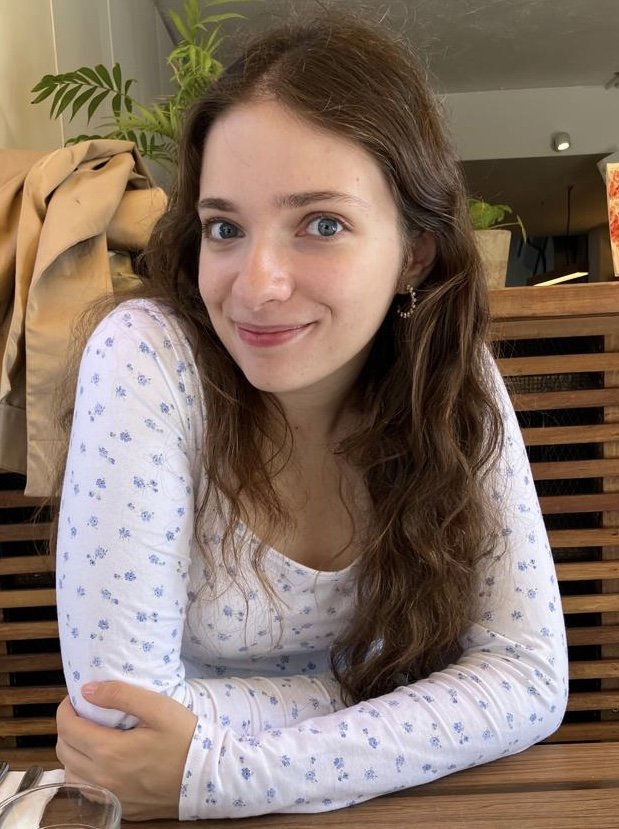
What A Levels (or equivalent) did you take?
English Literature, German, Greek, Maths.
What inspired you to study at Oxford?
Aside from Oxford being a gorgeous city with so much history, I was particularly attracted by the English course. There's so much breadth and it's a privilege to have the opportunity to read literature from every period of English, if you so desire (and find patterns and through lines).
What do you like about studying at St John's?
I may be biased, but I'm convinced it's the best college. My tutors and course mates are exceptional. Our location is central but the college itself is very quiet. Our libraries are stunning (from the sleek, modern Study Centre to the breathtaking Laudian). The garden has become one of my favourite places in the world (I've spent a lot of time reading there, as well as chatting with friends on the lawn in the long summer evenings). Kendrew Café is a great place to work sociably with excellent food at lunch (I'm especially impressed as a vegetarian). St John's is just a beautiful place to live and work.
What aspects of your degree do you find particularly enjoyable or fulfilling?
Seminars and tutorials. We've all gone away to read/think/write intensely... and then you quickly realise it's just the beginning. There's something utterly magical about a good seminar or tutorial with the inimitable St John's tutors. I hear what my wonderful course mates have been working on and we bounce off each other and everything opens up to so many possibilities. It's exhilarating.
How does life in College compare to what you originally envisioned?
Everyone is friendly. It's like a village. There's a kind of camaraderie, even with people you don't know very well, during long evenings in the library. I was surprised by how much of a community College is.
What do you do in your spare time?
I organise events for the University's poetry society (reading and writing poetry is a big part of my life, perhaps somewhat predictably for an English student...). I've invited some of my poetic heroes to read for us which has been dreamy. I enjoy editing poetry too, and it's been particularly exciting to work on The Mays anthology with students from Cambridge this year.
I love live music so I try to catch student bands - everything from pop to jazz. I'm also trying to spend as much time as possible in Oxford's many green spaces (I especially love Port Meadow).
What advice would you give to someone hoping to study at Oxford?
I think it's a helpful idea to think about applying as a way to find out what you love about your favourite subject, rather than just the end goal of applying to Oxford. Reading broadly and deeply in preparation gives you a tantalising glimpse of what being an undergraduate at Oxford feels like, and beginning to find out what really interests you independently of the school curriculum is something which will serve you beyond UCAS!
Oliver is a third-year student reading English Language and Literature.
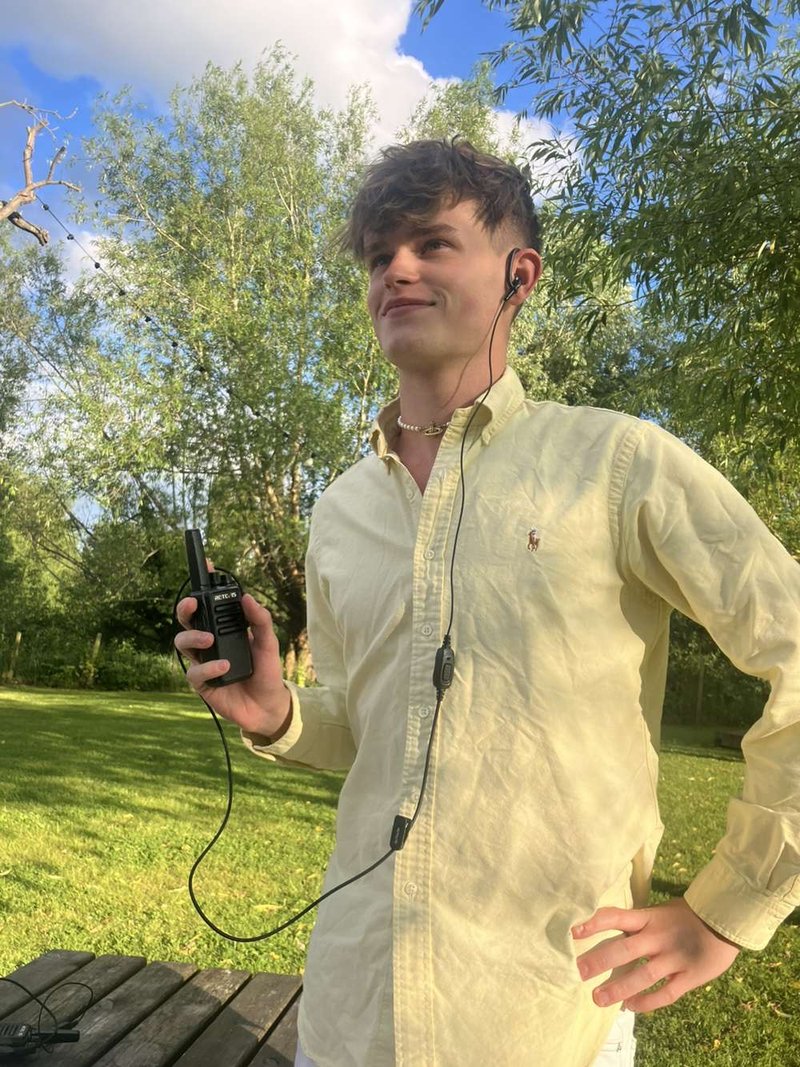
What A Levels (or equivalent) did you take?
English Literature, Art and Ancient History
What inspired you to study at Oxford?
I had always excelled academically and loved learning, especially in English. I really wanted to learn more about the history of English Literature and how our language has progressed. For me, Oxford was the place where I could best cultivate my interests and really put my enthusiasm for learning to use by developing my ideas on things I had experienced at A-Level and in my own reading.
What do you like about studying at St John's?
At St John’s, there is a very encouraging and supportive working environment amongst both my tutors and my peers that has really helped me to grow in my work and as a person. Studying English here often presents interesting challenges that I personally have really enjoyed working with.
What aspects of your degree do you find particularly enjoyable or fulfilling?
English at Oxford works on a very chronological basis, where you learn about literature in given periods of time. I have loved connecting the dots between English Literature, Foreign Literatures, History and Philosophy to see how texts respond to and are products of the culture of their time period. This has given me a new love for the powerfully innovative nature of literature, seeing how works are often in direct conversation with their cultures in a way that is often disruptive and, if I’m being honest, really cool.
How does life in College compare to what you originally envisioned?
Coming from a working-class background from the North-West of England, I wasn’t quite sure what to expect from John’s. Looking back now, I had nothing to worry about — everyone here is so friendly and supportive and the college environment is really fun, especially the bar. It really feels like a community and it is so easy to integrate into college life.
What do you do in your spare time?
For me, this has differed on a yearly basis. In First Year, I spent a lot of time really getting to know Oxford and my peers in all year groups, particularly through the college bar which is a really fun and social space. In Second Year, I got involved in the JCR as the Entertainments Officer, which means I planned entertainments for college such as BOPs (Big Organised Parties), which was a really fun experience where I met lots of new people and connected with the staff at college. In Third Year, I have really enjoyed using facilities such as the TV room and the DVD room to watch films with friends. I also enjoy going to the various events held in Oxford for my degree, such as Steven Fry’s Professor of Creative Media Lecture, as well as at the many museums.
What advice would you give to someone hoping to study at Oxford?
Apply to St John’s! But I would also say chase your interests and get stuck in learning about them, Oxford is the perfect environment for someone who is passionate about academia.
Is is a first-year student reading English Language and Literature.
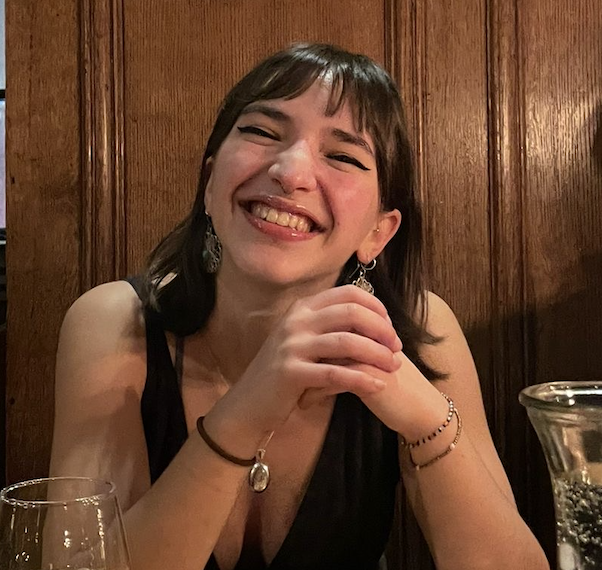
What A Levels (or equivalent) did you take?
English, German, Religion Philosophy and Ethics
What inspired you to study at Oxford?
My teachers encouraged me to apply to Oxford on the basis of the tutorial system, which involves teaching in very small groups. For my degree (English), this includes several seminars a week consisting of seven students and a tutor, as well as one tutorial with only one or two students (maximum three) in which we discuss and receive feedback on work we have produced. This is an incredible opportunity - there aren't many other universities in the world where students get the same kind of personalized contact with world-class experts in their subject. Apart from actual teaching, the resources on offer here are kind of mind-blowing, with 26 Bodleian libraries containing everything from book reviews and newspaper articles to rare original manuscripts. In addition, the University has such a rich history; personally, I feel especially lucky to be part of such an ancient tradition of learning. Its beautiful old buildings and amazing grounds are also an added bonus.
What do you like about studying at St John's?
I love our College life! My fellow St John's students have become my family - it's so lovely to always be surrounded by friendly faces, kind words and exciting young people! The immediate social pool here is bigger than what most other universities can offer their students who live in halls or flats, and yet still remains small enough that you won't ever feel totally anonymous. The College has really awesome facilities, such as our amazing library and beautiful gardens, among other fantastic resources like college cats, free welfare dinners and sports teams. We also maintain a flourishing social atmosphere for students through hosting events like BOPs (essentially big dance parties for undergraduates) as well as various other societies. Things like accommodation and food are also pretty cheap here in comparison to other colleges, which is definitely worth taking into consideration when making your application. I would also say that I have insanely dedicated tutors who work so hard to support and push their students to be their best academic selves.
What aspects of your degree do you find particularly enjoyable or fulfilling?
I'm really lucky, because I do genuinely love my degree. But it is really intense, and I would definitely struggle if I didn't have that passionate drive behind my pretty considerable workload. This is definitely something to think about if you're considering applying to Oxford; it's so important to choose a subject you actually enjoy, otherwise you'll just be burdened with work that you don't want to do, and may fall behind quite quickly. For me, the most fulfilling aspect is the quality of discussion that I enjoy with my fellow students and tutors - I always leave my seminars and tutorials feeling so inspired, nourished by new ideas and with renewed excitement about the work I'm doing. That feeling can be totally electric, and gives me enough of a drive to get through the more laborious process of research and essay writing.
How does life in College compare to what you originally envisioned?
It's been even better than what I anticipated - and I wouldn't say I had very low expectations! While you're still at school and living at home, its hard to conceptualize how exciting it is to be living amongst other people at the same stage of life as you, and yet have the freedom to maintain your own independence and pursue your own interests.
What do you do in your spare time?
I play football for the University women's second team, and enjoy a fulfilling social life. I've also been to a few life-drawing classes here and there. It's so important to have an outlet somewhere that allows you to switch off your academic brain for a few hours a week! The University has so much to offer in terms of extra-curriculars; no matter what your interests, you'll find something that suits you. Take advantage!
What advice would you give to someone hoping to study at Oxford?
I would say that it's important to remember that Oxford has the prestigious academic reputation it does for a reason - namely, that students work very hard here. The 8-week terms are intense, packed with a dense workload. That's not to say it isn't manageable - but sometimes, people get lost a bit in romanticising the glamour of the University, and forget the reality of academic pressure and hard work. But at the same time, if you're careful to stay on top of the demands of your degree, you won't find a more rewarding place to study.
Declan is a second-year student reading English and French

What A Levels (or equivalent) did you take?
I took the following AP exams in the United States as my A level equivalent: AP European History, AP Physics 1, AP US History, AP Chemistry, AP English Language, AP French, AP English Literature, AP Psychology, AP Government, AP Art History, AP Calculus BC
What inspired you to study at Oxford?
When applying to universities, I sought an international environment where I would be challenged academically. As a literature student, I was inspired by the rich history of authors and literary thinkers connected to Oxford. I was also inspired by the opportunity to live in a new country, meet students from across the world, and experience a new style of learning through the tutorial system.
What do you like about studying at St John's?
There is a helpful amount of structured teaching. Literature seminars on the English side of the course and language work on the French side have helped develop my thinking for essays. The tutors do an incredible job of pushing your thinking to new heights, and the tutorial system has helped me grow academically beyond what I thought I was capable of.
What aspects of your degree do you find particularly enjoyable or fulfilling?
Beyond English and French, there is a great breadth of subjects to engage with within the course. I often find myself engaging deeply with history, philosophy, and theology- all subjects I love. While the degree is very much literature-focused, the opportunity to sample these other disciplines has been a bonus. One of my favorite aspects of the course is developing new connections between subjects and applying them in unique combinations to future essays.
How does life in College compare to what you originally envisioned?
As an international student from the United States, I did not know what to expect (everything was new)! However, I will say that life in college is much more close-knit than I imagined. I have made lifelong friendships at John’s and forged close relationships with my tutors. Both academically and socially, John’s is a very supportive community.
What do you do in your spare time?
In my spare time, I lead the Oxford Society for International Development, play for the college football team, and represent St John’s on the English Faculty’s Joint Consultative Committee. Oxford has (nearly infinite) opportunities to pursue your interests, and I’ve enjoyed attending many different society events during my first two years. Whether within college or externally, everyone is welcome to participate. There are few places in the world with such a wide variety of opportunities, and if Oxford doesn’t have it, you can create it!
What advice would you give to someone hoping to study at Oxford?
Studying at Oxford is a rare opportunity to explore your subject with a tremendous amount of freedom. While taking the initiative to study here can be daunting, it is incredibly rewarding. At Oxford, it is very important to find balance. Make time for things you enjoy and approach every day with curiosity. There is much to learn and explore here, and you never know what might cross your path!



